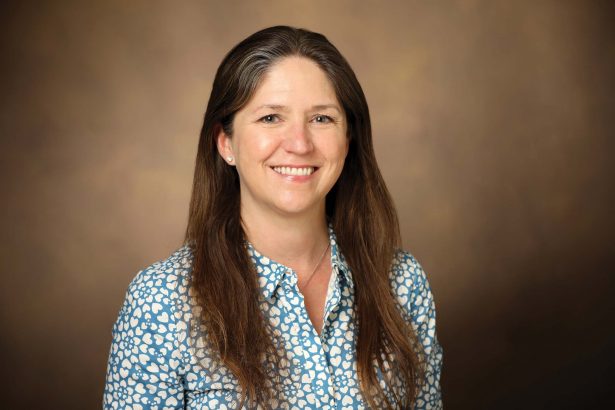Vanderbilt Sarcoma Center Clinic helps patients with rare cancer
November 30, 2023

The Vanderbilt Sarcoma Center, which treats a high volume of patients, has teams of highly specialized physicians with experience combating the more than 100 subtypes of sarcoma, a rare cancer that develops in bone or soft connective tissue. This multidisciplinary approach makes a critical difference in patient outcomes.
Vicki Keedy, MD, associate professor of Medicine and clinical director of Vanderbilt-Ingram’s sarcoma program, said patients with sarcoma regularly come to Vanderbilt-Ingram from all over Kentucky, Tennessee, Mississippi and Alabama. But they have also come from as far away as Seattle, Florida, Michigan and Missouri because Vanderbilt-Ingram is a core site in the Sarcoma Alliance for Research through Collaboration and has such a large research portfolio, she said.
Sarcoma care is becoming more complicated since the classification system changes frequently, said Keedy, who was recently named a fellow of the American Society of Clinical Oncology for her record of volunteer service, dedication and commitment to the organization.
“We are now up to more than 100 bone and soft tissue sarcomas. Ten to 20 years ago we treated a large portion of those almost exactly the same regardless of what they were called. Luckily that has changed, and they’re being managed as the individual types of sarcomas that they are, not lumped into one big soft tissue or bone sarcoma category,” she said. “Since new sarcomas are being named all the time and because treatment is different now in many of those sarcomas, care is very individualized.”
There are 13,000 new cases of soft tissue and about 4,000 cases of bone sarcomas each year. The whole group of sarcomas make up about 1% of all adult cancers, but about 10-15% of all pediatric cancer diagnoses.
Because sarcomas can occur anywhere in the body, they can cross surgical specialties, so it’s not unusual for patients with sarcoma at Vanderbilt-Ingram to have three or four surgical specialties involved in their case. A multidisciplinary team, including sarcoma-specific tumor boards, surgery, radiation, pathology and imaging expertise, with an understanding of the complex needs of patients with sarcoma, is what brings patients from across the country to Vanderbilt-Ingram, Keedy said. Patient-centered support options, including the young adult initiative, social work, physical therapy, palliative care, pain management and patient navigators, add to the expertise provided at Vanderbilt-Ingram.
“We do our best to coordinate care so that patients who are driving hundreds of miles to come see us may only have to spend one night. We try to coordinate care and expedite their workup and treatment planning as much as possible so it’s easier on the patients and might prevent making multiple visits to Vanderbilt.”
Vanderbilt-Ingram Cancer Center has participated in more than 60 clinical trials for sarcoma drugs.
“We are in great need of novel therapies,” said Scott C. Borinstein, MD, PhD, director of the Pediatric Sarcoma Program at Monroe Carell Jr. Children’s Hospital at Vanderbilt. “Because we are a large referral center, we often have patients come from several hours away. Being able to create a clinic in which we work together makes it a whole lot easier for patients to get everything they need at one time,” said Borinstein, associate professor of Pediatrics in the Division of Hematology/Oncology and the Scott and Tracie Hamilton Professor of Cancer Survivorship.
“We can coordinate all their surveillance scans and their follow-up with Orthopaedic Surgery and Oncology. We can look at the X-rays in real time together, and we can make a unified decision.”
